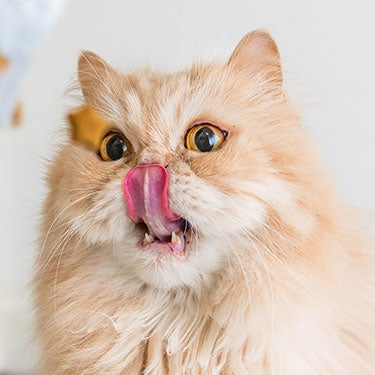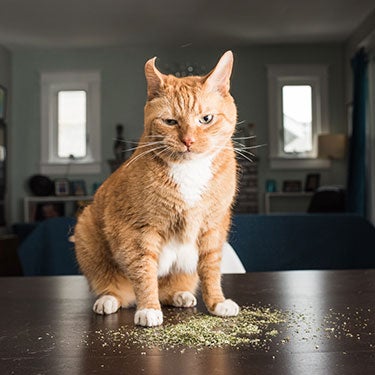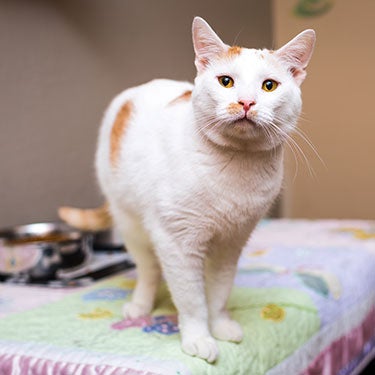Cats and Milk
Is milk actually a healthy treat for your cat, or is that a total myth?Cats & milk.
There are many images out there of cats lapping up a special treat of milk. Although this is an adorable visual, it’s largely false: Most cats are lactose intolerant and don’t have the enzymes necessary to break down lactase, which is found in milk.1
It’s true that not all cats are lactose intolerant, but a majority of cats are, and there’s virtually no way to tell if your cat is intolerant or tolerant without giving him or her a taste test, and possibly getting them sick in the process.
Let’s explore when it’s okay to dish out some milk and when it may be harmful to your furry friend.
What’s with the myth?
Cats are very fond of cream. While cream often rises to the top and is desired by cats for its fat content, most milk that you find in your supermarket today contains little fat, and while it may be tasty, it’s very difficult for cats to digest.
So, a treat of milk might very shortly turn into the runs for your kitty. But what about when kittens are born? Don’t they drink milk from their mothers?
Kittens vs. cats.
When cats are young kittens, they are typically reliant on their mothers for nourishment — and that means mama’s milk. However, as they grow kittens begin to lose the lactase enzyme that allows them to digest the lactose found in milk.1
If your kitten is young enough to be bottle-fed, don’t go for cow’s milk as a replacement. Instead, find a kitten-specific formula,2 which has all the nutrients necessary for a growing kitten.
Alternatives to milk.
If you want your kitty to be hydrated and have a productive digestive system, allowing her to drink water is always the best choice.3 Aside from wet food, cats typically don’t get enough water in their diet and can be prone to dehydration and other underlying diseases that are associated with not drinking enough water.
If you want to make water a bit more enticing for your cat, consider purchasing a fun cat water fountain, or simply let the faucet drip and have your cat drink from the bathroom tap — under supervision, of course.
What about almond milk? Though you may be tempted to run out and buy almond milk for your cat, this also isn’t recommended.4 It’s true that almond milk doesn’t contain lactose, but almond milk does contain — you guessed it — almonds.
Cats may be sensitive to certain nuts, which can also cause stomach problems. So, if you’re seeking an alternative milk treat, we recommend lactose-free milk, which is usually available at pet stores and grocery stores.
This milk may be a safe treat for lactose-intolerant kitty cats (and humans if you so desire) to enjoy from time to time since the lactose is removed. At the pet store, you’ll also find cat-specific milks that are an acceptable and safe treat.
1. Why cats and cow’s milk don’t mix. (n.d.). https://www.prestigeanimalhospital.com/services/cats/blog/why-cats-and-cows-milk-dont-mix
2. Recipes for homemade kitten formula. (2019). https://kittenrescue.org/2017/03/recipes-emergency-kitten-formula/
3. Huston L. (n.d.). How to get a cat to drink water. https://www.petmd.com/cat/centers/nutrition/slideshows/does-you-cat-drink-enough-water
4. Wooten S. (2018). Can kittens drink milk? https://www.petmd.com/news/view/can-kittens-drink-milk-37852




